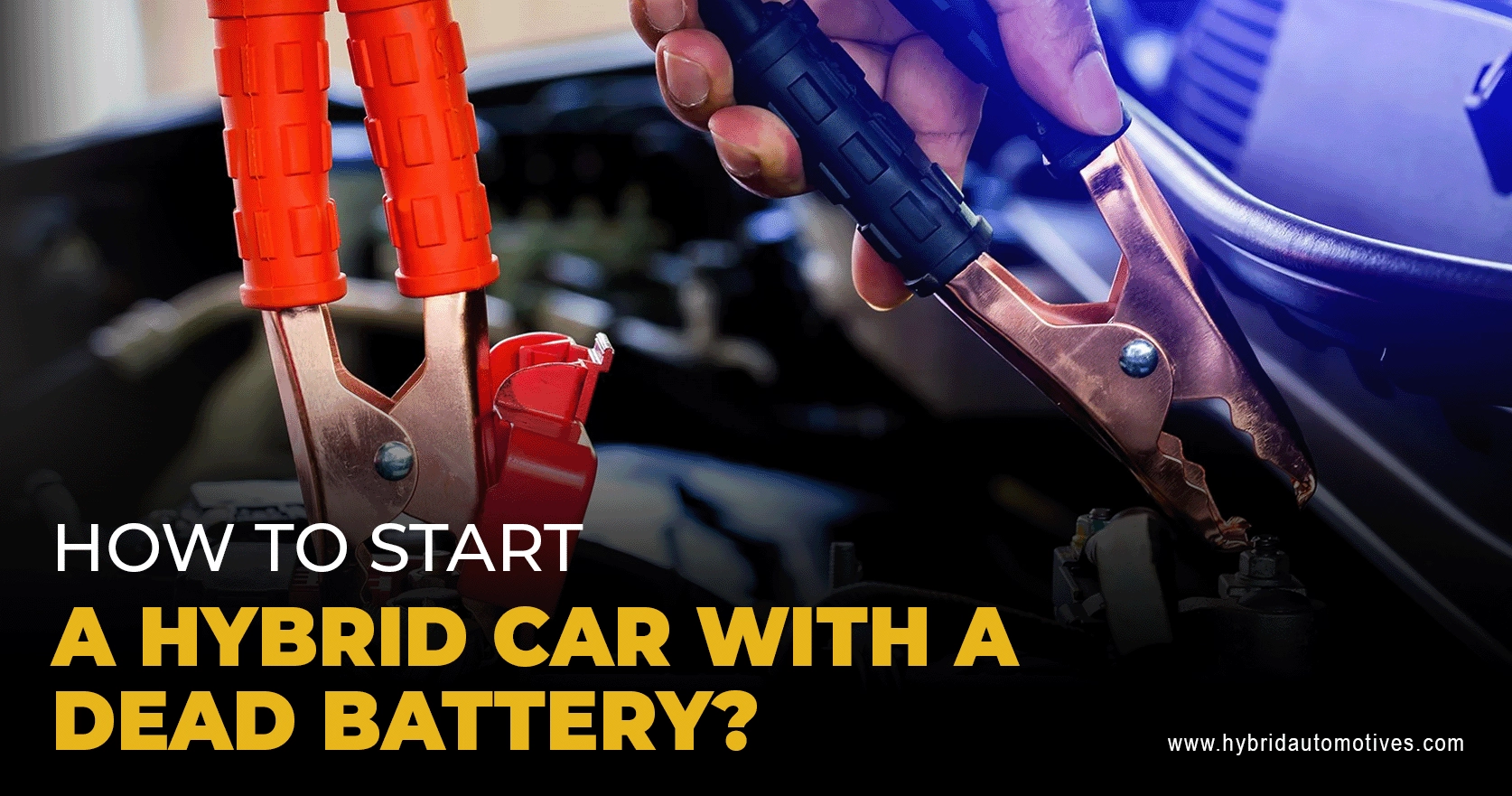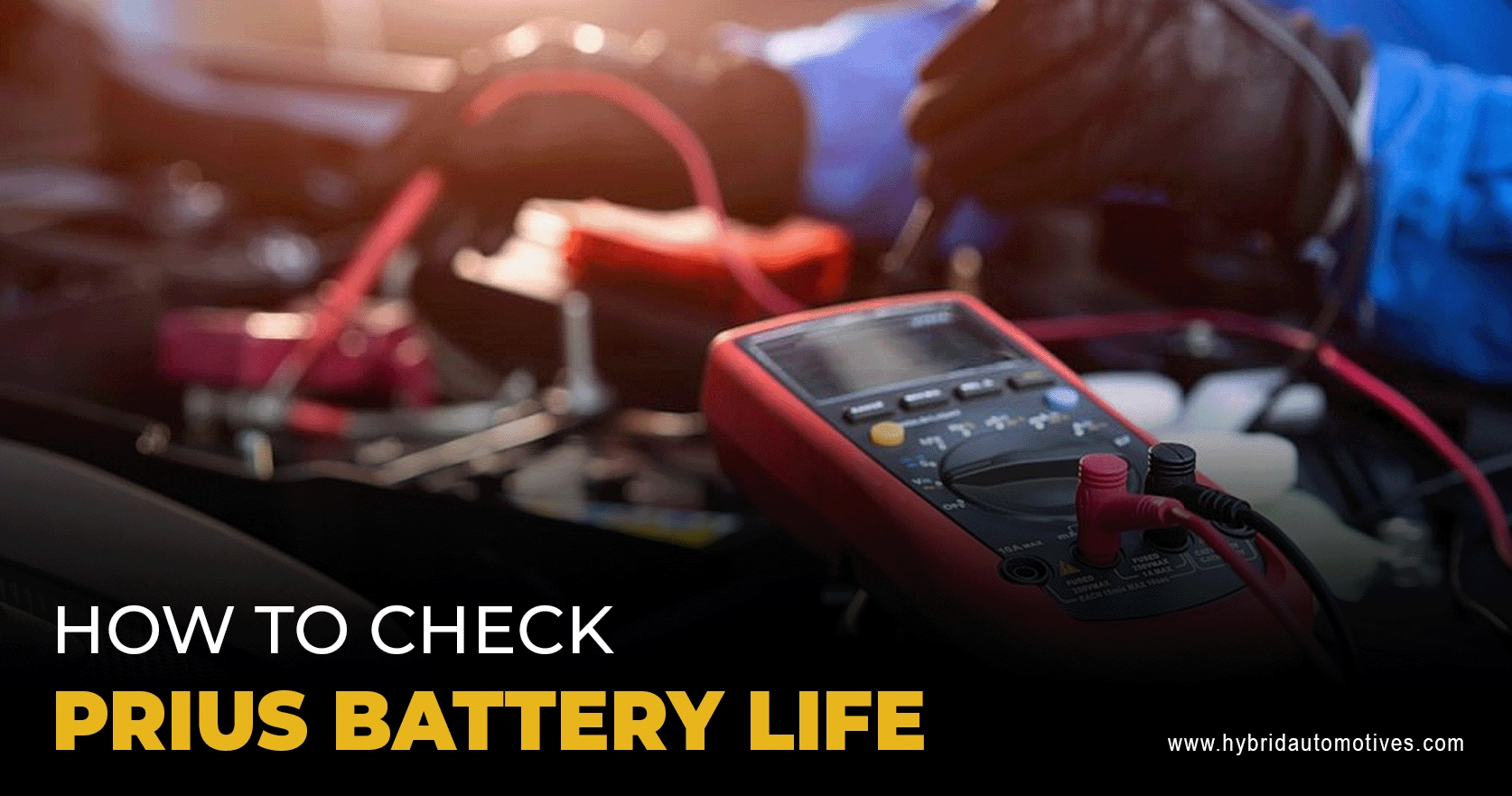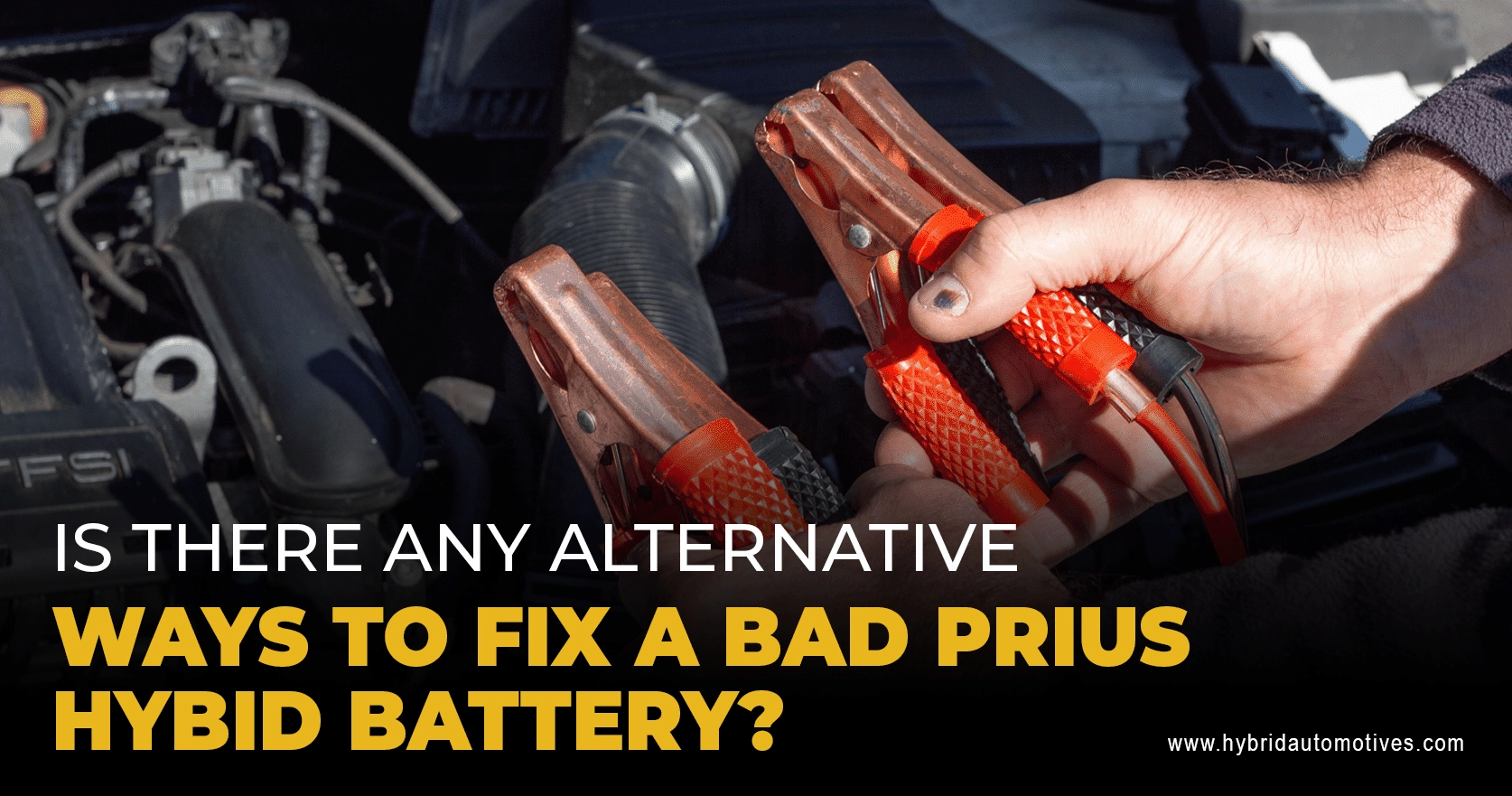Driving a Prius with a Bad Hybrid Battery: What to Consider
Can you drive a Prius with a bad hybrid battery?
No, driving a Prius with a bad hybrid battery is not recommended due to potential performance issues, decreased efficiency, and the risk of further damage to the hybrid system. It’s best to have the battery inspected and repaired promptly by a qualified mechanic or dealership to ensure safe operation.
Why it’s not recommended:
- Reduced safety: A compromised battery can limit power when you need it most, like merging onto highways.
- Further damage: Running on a failing battery can stress other parts of the hybrid system, leading to costlier repairs.
- Undiagnosed problems: The warning light for a bad battery might indicate other underlying issues in the hybrid system.
In short, while driving with a bad battery might be possible in short bursts, it’s best to address the issue for safety and optimal vehicle performance.
What will happen if I drive my Prius with a bad hybrid battery?
If you drive your Prius with a bad hybrid battery, you may experience several consequences:
Decreased Fuel Efficiency:
Studies have shown that a malfunctioning hybrid battery can lead to up to a 20% decrease in fuel efficiency compared to a properly functioning hybrid system.
The electric motor in a Prius is designed to assist the gasoline engine during low-speed driving and acceleration, optimizing fuel consumption. When the hybrid battery is not functioning correctly, the vehicle relies more heavily on the gasoline engine alone, resulting in higher fuel consumption.
Reduced Performance:
Tests conducted by automotive experts have demonstrated that a faulty hybrid battery can lead to a noticeable decrease in acceleration times and overall performance metrics.
The hybrid system in a Prius is engineered to seamlessly blend power from the electric motor and gasoline engine. When the hybrid battery is not functioning properly, the vehicle may struggle to achieve the same level of performance, leading to slower acceleration and diminished power output.
Increased Emissions:
Research has indicated that a malfunctioning hybrid battery can cause the gasoline engine to operate inefficiently, resulting in higher emissions of harmful pollutants such as carbon dioxide (CO2) and nitrogen oxides (NOx).
The Prius is renowned for its low emissions thanks to its hybrid technology. However, when the hybrid battery is compromised, the gasoline engine may run more frequently and at suboptimal conditions, leading to increased emissions.
Potential Damage to Other Components:
Mechanics and technicians have reported instances where driving with a bad hybrid battery has resulted in damage to other components of the hybrid system, such as the inverter or electric motor.
The hybrid system in a Prius relies on precise coordination between various components. When the hybrid battery is malfunctioning, other components may be subjected to additional stress or operate outside of their intended parameters, increasing the risk of damage over time.
Eventually, Complete Failure:
Data from automotive service centers show that neglecting a bad hybrid battery can lead to a complete failure of the hybrid system, requiring extensive repairs or replacement.
The battery in a Prius hybrid car usually lasts around 8 to 10 years before it needs to be replaced. Ignoring signs of a failing battery, such as decreased performance or warning lights, can lead to further deterioration and eventual system failure, leaving the vehicle inoperable until repairs are made.
How to start a hybrid car with a dead battery?

Jumping a hybrid car with a dead 12v battery is similar to jumping a regular car. Here’s what you’ll need:
- Jumper cables
- Another car with a good 12v battery (Important: The donor car’s battery voltage should be similar to yours)
Steps:
- Park both cars close together, ensuring they don’t touch.
- Turn off all electronics and ignition systems in both cars.
- Open the hoods of both vehicles.
- Locate the 12v batteries in each car. The Prius battery is usually under the hood in a compartment. If you’re unsure where it is, check your car’s manual for the exact spot.
- Identify the positive (+) and negative (-) terminals on each battery. Look for symbols with a plus or minus, and usually, the positive one is red.
- Connect the jumper cables in the following order:
- Clamp one RED cable to the POSITIVE (+) terminal of the good battery.
- Clamp the other end of the RED cable to the POSITIVE (+) terminal of the dead Prius battery.
- Attach the BLACK cable to the NEGATIVE (-) side of the good battery.
- Clamp the other end of the BLACK cable to a bare metal grounding point on the Prius frame, away from the battery and any moving parts. Important: Don’t connect it to the negative terminal of the dead battery!
- Turn on the car with a good battery and let it run for a few minutes.
- Attempt to start your Prius. If it starts up without issues, let it run for some time to recharge the internal 12v battery.
- Disconnect the jumper cables in the reverse order of connection (black cable from Prius first, then black from the good car, red from Prius, then red from the good car).
Important safety precautions:
- Do not let the jumper cables touch each other while connected. This can cause sparks and damage the vehicles’ electrical systems.
- Ensure proper connection of all cable clamps. A loose connection can hinder the jump-start process.
- Never attach the negative cable to the negative terminal of the dead battery. This can harm the hybrid battery system.
If your Prius doesn’t start after these steps, there might be an issue with the hybrid battery itself, and it’s recommended to consult a professional mechanic.
How to Check Prius Battery Life

Checking the life of a Prius battery involves several methods:
- Check Dashboard Indicators: Prius models typically have dashboard indicators that provide information about the hybrid battery’s health. Look for warning lights or messages related to the hybrid system. If the battery is close to wearing out, there might be warnings about reduced performance or battery decline.
- Diagnostic Scan Tools: Automotive diagnostic scan tools can be used to assess the health of the hybrid battery. These tools can access codes and data from the car’s onboard computer, giving insights into the battery’s condition and any possible problems.
- Battery Load Test: A battery load test, particularly conducted by a qualified technician, entails applying a load to the hybrid battery while monitoring its voltage and performance. This diagnostic method gauges the hybrid battery lifespan, and the battery’s ability to store and deliver energy, providing insights into its general condition, remaining hybrid battery lifespan, and potential.
- Dealer Inspection: Taking your Prius to a certified Toyota dealer for a comprehensive inspection is another way to assess the battery’s condition. Dealerships have specialized equipment and trained technicians who can perform thorough diagnostics and provide recommendations based on the battery’s performance.
- Battery Health Reports: Some Prius models have features that allow owners to generate battery health reports. These reports can provide valuable information about the battery’s capacity, voltage, and overall health, helping owners track its condition over time.
How much does it cost to replace a Prius hybrid battery?
In Australia, the cost to replace a Prius hybrid battery can vary depending on several factors, including the model year of the Prius, the specific hybrid battery pack required, and labor costs at the dealership or service center. However, a new hybrid battery for a Toyota Prius in Australia typically ranges from $2,000 to $4,500 or more, excluding installation fees.
Are there any alternative ways to fix a bad Prius hybrid battery?

There are a few alternative ways to address a bad Prius hybrid battery, besides replacing it entirely. Here’s a breakdown of the options, with their pros and cons:
Hybrid Battery Reconditioning:
- Process: This involves removing the battery pack, testing individual modules, replacing weak modules with refurbished ones, and balancing the remaining cells.
- Pros: It might cost less than replacing the entire battery and can help prolong the life of the current battery.
- Cons: Effectiveness depends on the severity of battery degradation. May not be a long-term solution for very old or damaged batteries. Finding a reputable service provider is crucial.
Replacing Individual Modules:
- Process: Similar to reconditioning, only the failing modules are replaced with new or used ones.
- Pros: Potentially less expensive than full replacement.
- Cons: Requires technical expertise and specialized tools. Matching compatible modules can be challenging. Warranty on replacement modules might be limited. Safety risks exist when handling high-voltage batteries.
Used Replacement Battery:
- Process: Locating a used battery pack from a salvaged Prius with similar mileage.
- Pros: Potentially lower cost than a new battery.
- Cons: Battery history and condition are unknown. Limited warranty options compared to new batteries. Finding a compatible, reliable battery can be difficult. Installation might require programming by a Toyota dealer.
Important Considerations:
- DIY vs. Professional: These methods, except reconditioning offered by repair shops, are generally not recommended for DIY unless you have significant experience working with high-voltage systems. Safety risks are high, and improper handling can damage the battery or car.
- Warranty: Reconditioned batteries and used replacements often have shorter warranties than new batteries.
- Long-term Reliability: While these options can provide a temporary fix, they might not be as reliable as a new battery in the long run.
FAQs (Frequently Ask Questions)
Q. Can I replace a Prius hybrid battery myself?
A. Although it’s technically feasible, it’s not advisable due to safety hazards and the complexity involved. It’s best to leave it to trained professionals.
Q. What are some signs that my Prius hybrid battery may need replacement?
A. Signs that your Prius hybrid battery may need replacement include decreased fuel efficiency, reduced performance, dashboard warning lights, and difficulty starting the vehicle.
Q. How long does a Prius hybrid battery typically last?
A. Typically, Prius hybrid batteries last between 8 to 10 years or approximately 100,000 to 150,000 miles, although this can vary.
Q. Are there aftermarket or third-party options for Prius hybrid battery replacement?
A. Yes, the quality, warranty, and compatibility of aftermarket options vary. It’s important to research and seek advice from a professional before making a choice.
Q. Can I extend the lifespan of my Prius hybrid battery through maintenance or care practices?
A. Yes, avoid deep discharges, keep the battery charged, avoid extreme temperatures, follow the maintenance schedule, and address issues promptly.
